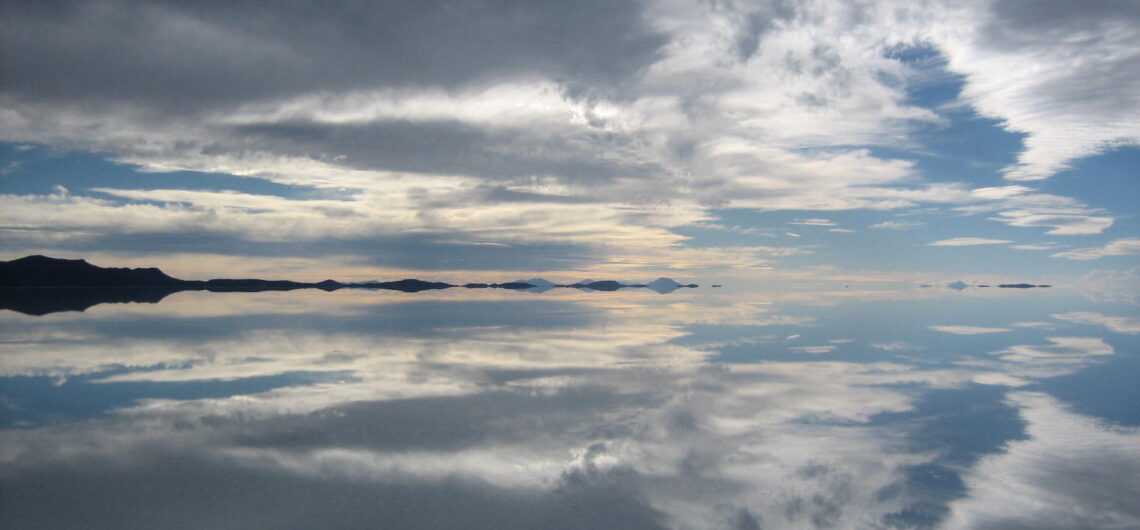Introducing Bolivia
Packed with extreme landscapes and diverse cultural heritage, Bolivia is becoming an increasingly popular destination for more adventurous travelers. With altitudes ranging from slightly above sea level to over 20,000 feet, the landlocked country has a variety of climates that make for an amazing trip where one can combine visits to rain forests, deserts, mountains, plains, lakes and more.
To meet the growing demand for trips to Bolivia, we are excited to launch a brand new sample itinerary–just in time for the New Year–that demonstrates the best of the country’s highlands: Bolivia: Salt flats and silver. Over 12 days and 11 nights, our suggested itinerary includes guided excursions to the key destinations in the Bolivian Andes, incorporating the most comfortable and authentic accommodations along the way.
Bolivian Highlands
The itinerary starts off in La Paz with tours of the city, to check out different neighborhoods and see wonderful art and markets. Next, it includes a visit to an urban farm and cheese maker in the outskirts followed by a recommended dinner at Claus Meyer’s restaurant, Gustu. From La Paz, a brief stop in Tiwanaku, a Pre-Columbian archaeological and UNESCO World Heritage site can be enjoyed en route to Lake Titicaca and the Isla del Sol (Sun Island). Known as the legendary birthplace of the Inca Empire, the scenic island has magnificent views over Lake Titicaca and the Andes mountains and is ideal for day trekking.
After touring the island and staying overnight in a rustic and comfortable eco-lodge, travelers head back to La Paz to spend the night prior to flying south to visit the largest and highest altitude salt flats in the world, the Salar de Uyuni. The expansive salt flats, spanning 200km, are a sight to behold, especially at night when the stars come out. We can also organize for a specialist astronomer to accompany the group for a spot of stargazing.
Accommodation in the Uyuni region is basic, but for the three nights spent here we have selected hotels that are comfortable and offer essential amenities. It’s also possible to spend a night in a hotel made of salt, or enjoy the comfort and seclusion of a fully equipped Airstream camper in the middle of the Salar de Uyuni!
The salt flats aren’t the only thing to see in the area. Surrounding Uyuni there are amazing rock formations, volcanoes, and further to the south there is the otherworldly Eduardo Avaroa Andean Fauna Reserve. The colors one encounters here are unbelievable, traversing the Dali Desert, stopping by surreal green, blue and red lakes with pink flamingos and alpacas in the distance.
Following three days and three nights in the Uyuni region, continue on to the colonial city of Potosí, where two nights are spent at Hacienda Cayara. Built in 1557, Hacienda Cayara was recently voted one of the best haciendas in South America by Travel+Leisure magazine. Cayara is one of the few surviving haciendas from the colonial era when Spaniards controlled the region and farms were developed to provide produce to sustain those involved in the large-scale mining operations around Potosí. The hacienda is a treasure trove of antique books, paintings, Colonial, Republican armor and much more. It has a lovely chapel that has just been restored by the owner, Dr. Arturo Leyton, and his team.
Potosí is a city that was once brimming with silver that was shipped back to Europe and is now home to a silver museum, which you will visit, and an immense mine—still functioning, but nothing in comparison to the days of the Spanish Conquistadors. Tours of the Cerro Rico mine are fascinating although not for everyone. There are alternate tours available for those who would like to see the towering Cerro Rico up close without entering into the dark tunnels.
Following Potosí, the next destination is Sucre, Bolivia’s co-capital with La Paz. Sucre is a quaint white city with colonial-style architecture and many places to take in picturesque views of the skyline. Two nights will be spent in a lovely renovated colonial house to have time to explore this beautiful city, the final destination in our 12-day journey. The guide will explain the various options in order for the travelers to choose the activities that best fit their interests. One amazing stop in Sucre is the Tarabuco Market on the outskirts, where one can peruse the colorful textiles and other local products available for purchase.
On day 12, our representative will accompany the travelers to the airport to send them on their way home via La Paz, with vivid memories of a spectacular part of the world that will last a lifetime.
If you are interested in learning more about this itinerary or organizing a similar trip, please contact us.

